Deep Dive: What's New in Renku 2.0
Are you a seasoned Renku user who is curious to know the key differences between Renku 1.0 and 2.0? Here's a summary of what's new.
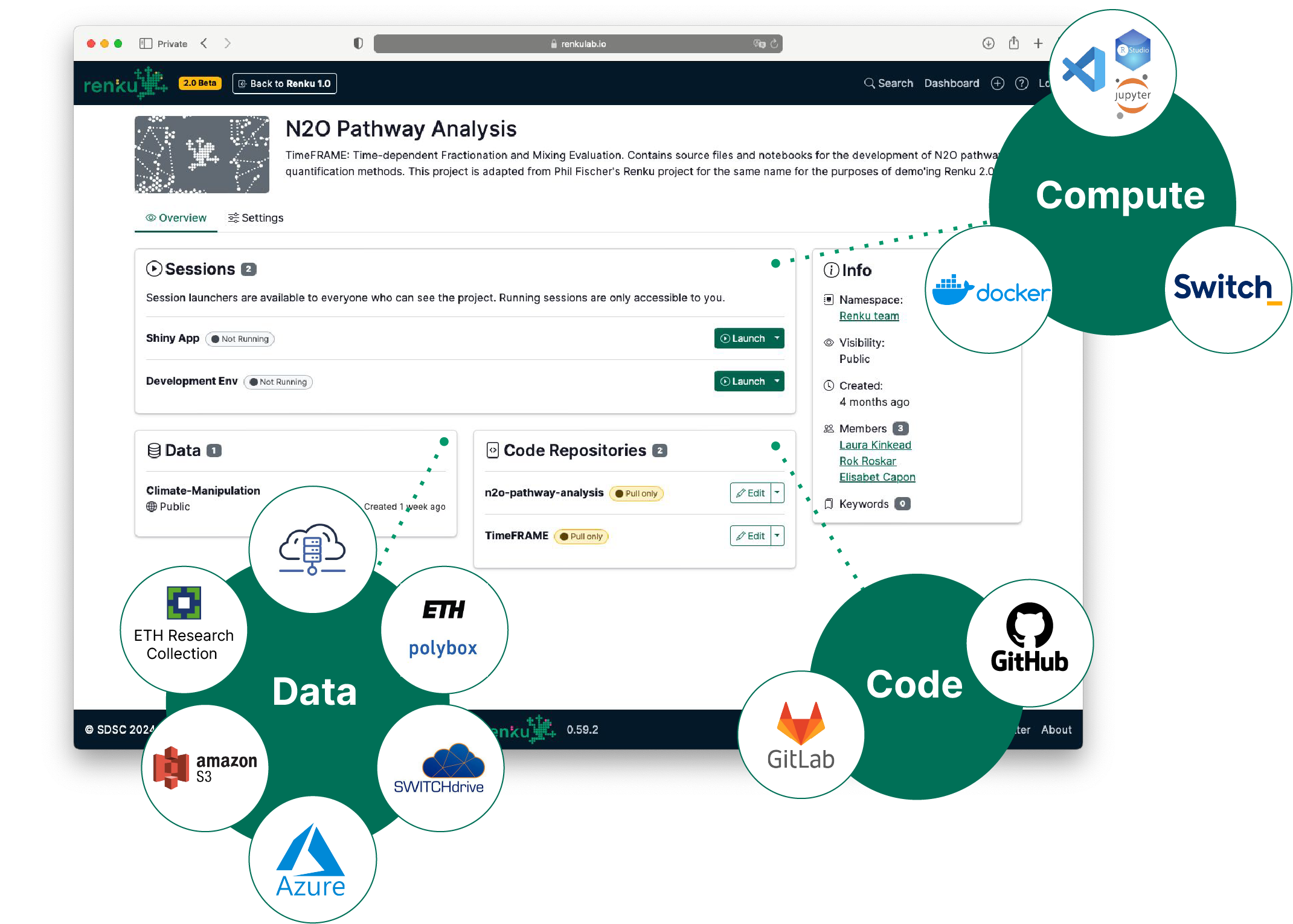
Connect external Code Repositories
You can now connect one or more Git repositories (or none!) to a Renku project.
Unlike in Renku 1.0, a Renku 2.0 project is not a Git repository itself. And when you connect a repository, Renku does not modify the code repository in any way. Your code stays as it is, and Renku stays out of the way.
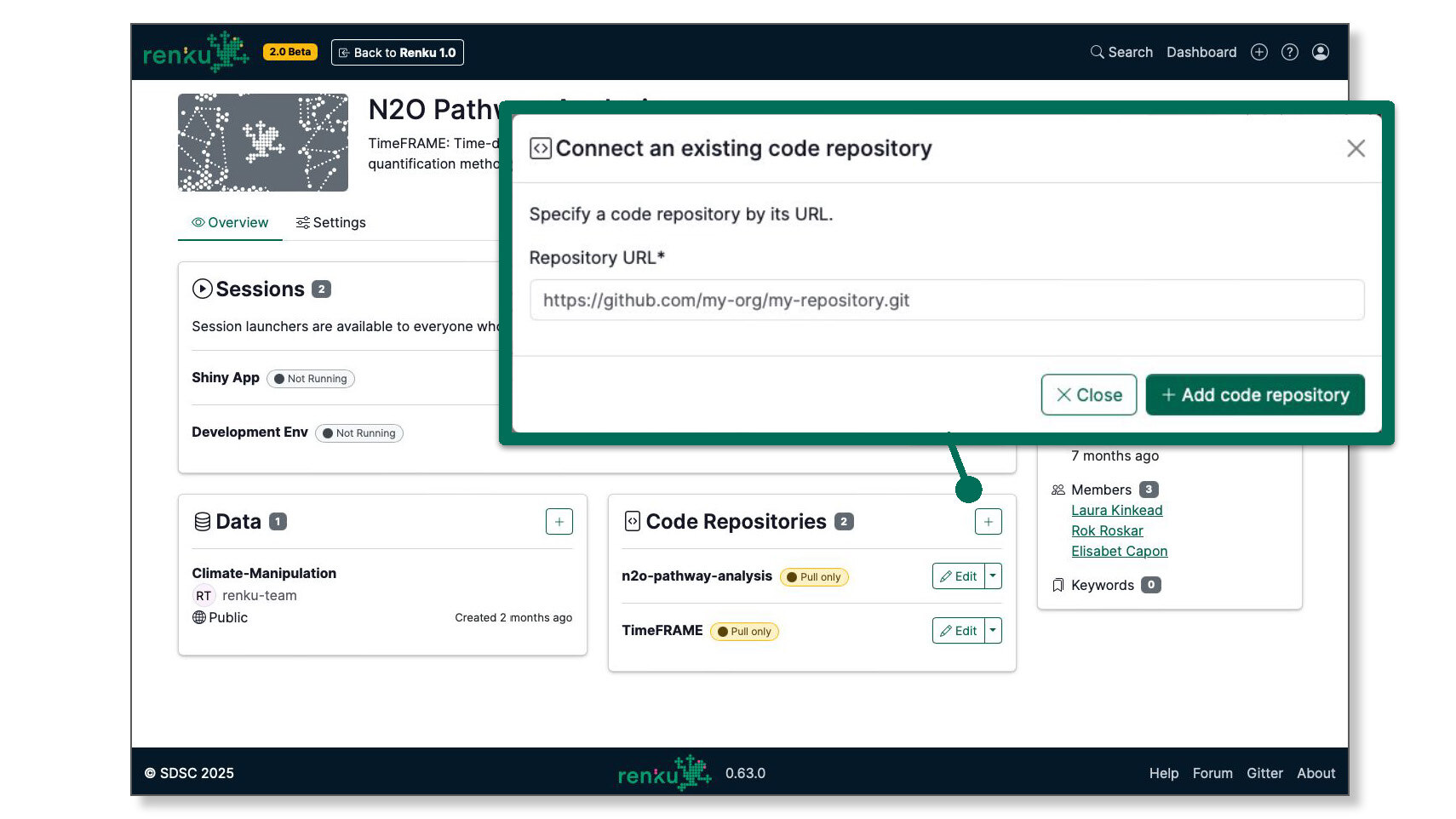
Data Connectors replace Datasets
There's no need to move your data into Renku - keep it where it's stored and simply link it to your project.
Access rights remain fully controlled by the system where your data lives. Renku does not alter permissions, so private data stays private.
While data versioning isn't a feature in Renku 2.0, you can trace how a data connector is used across projects. Open a data connector's side sheet to see all linked projects.
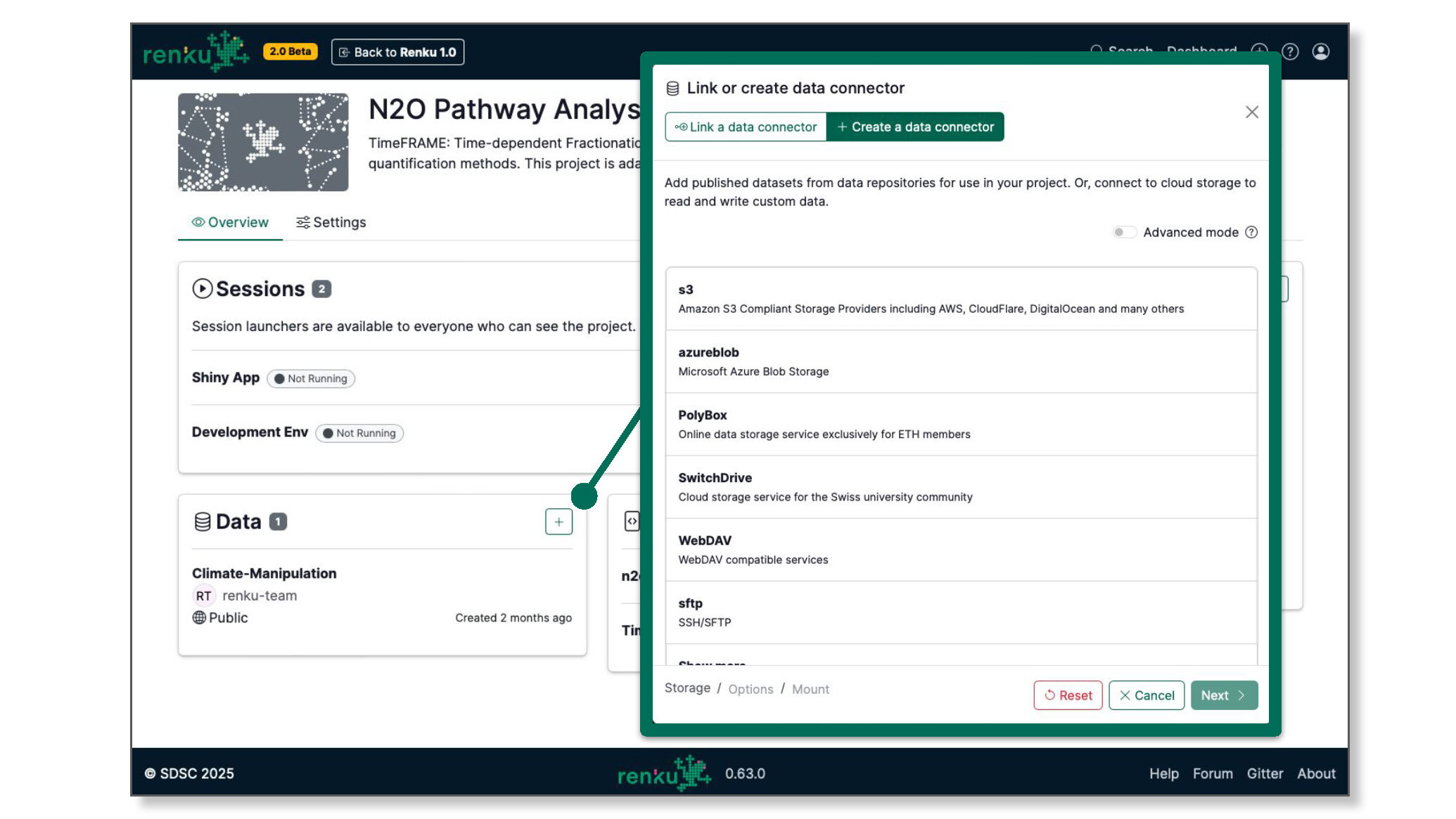
Do more with Sessions
Bring a wider range of images to Renku 2.0 without the requirement for Jupyter. This makes the platform more versatile and adaptable to your needs.
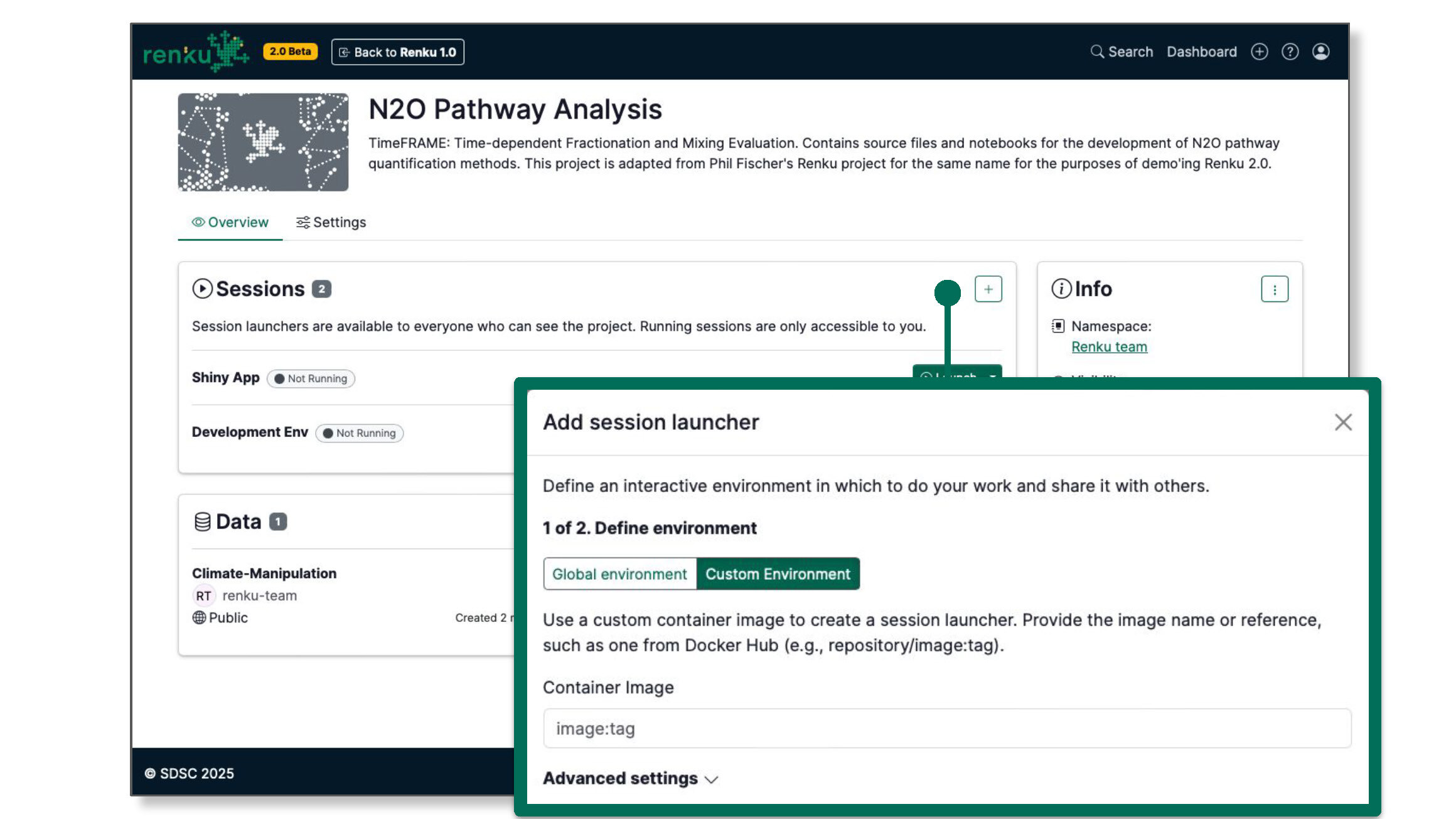
Enhanced Sharing
It's much easier to share your project in Renku 2.0. Add collaborators directly to your project, and create groups to organize collections of projects and data connectors.
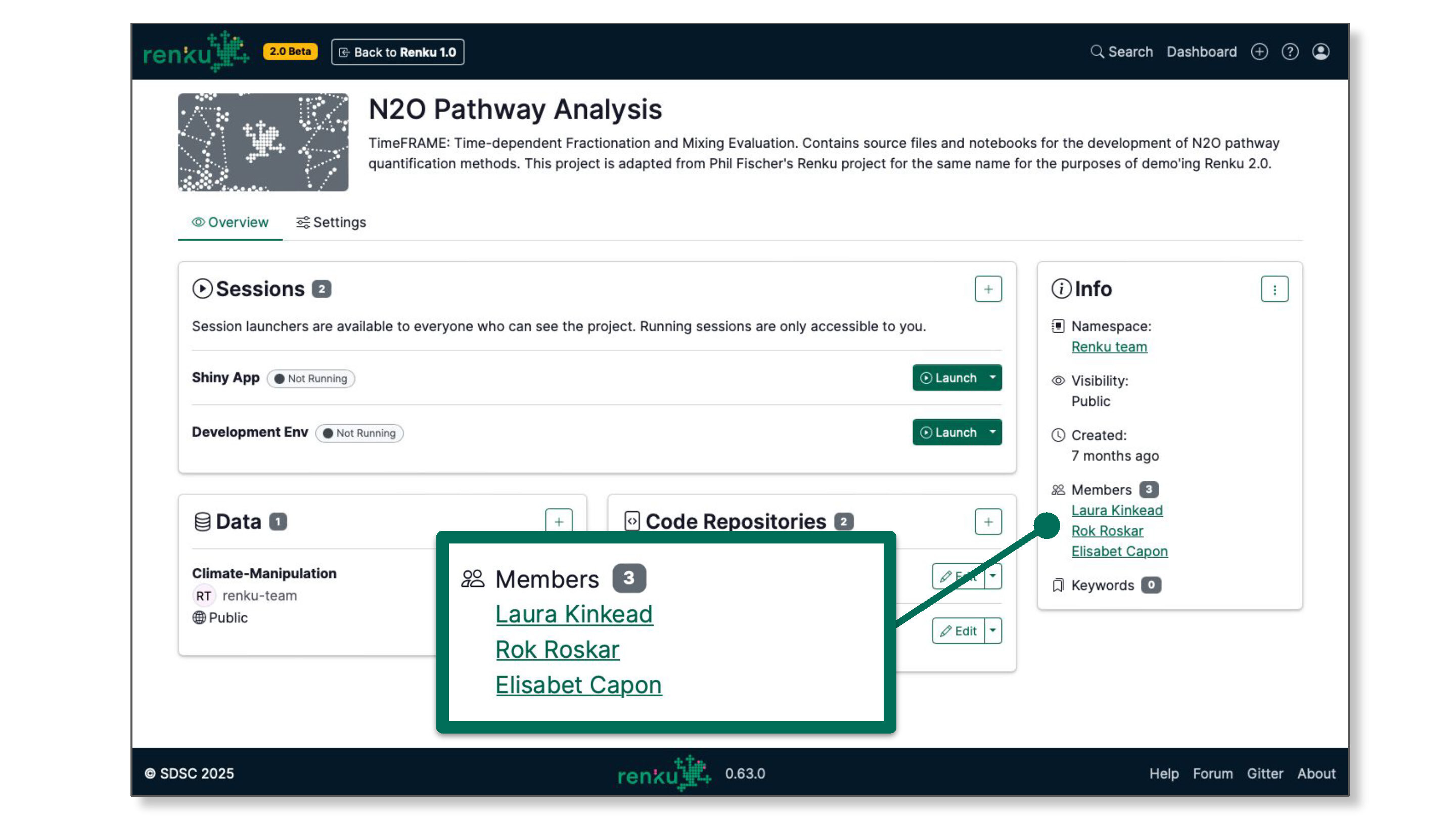
A new vision for Workflows
Instead of building our own workflow tool, Renku 2.0 embraces existing workflow tools. This allows you to use the tools you're already familiar with and integrate them seamlessly into your projects.
Start Exploring Today!

Take Renku 2.0 for a spin and discover how easy collaborative research can be. We can't wait to see what you'll build with Renku 2.0!
